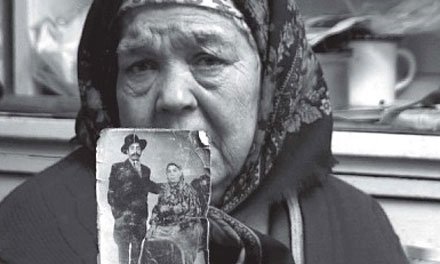Three thousand prisoners of Roma origin were executed at the Auschwitz Gypsy camp on the 2 of August 1944. On this day, the Roma of Europe commemorate the Holocaust, the porajmos as they call it, or in the Lovari dialect, the pharrajimos, the destruction. In Hungary, there are still many unexcavated mass graves where the Roma victims of the genocide lie unmarked. We remember the victims of the Holocaust with Róbert Balogh, a Reformed pastor from Váchartyán.
"The Roma Holocaust is a silenced Holocaust..." I heard earlier from a Roma minority researcher. It was as if the Roma's destruction differed from that of the other victims who were taken to the death camps and murdered.
I think that the trauma of the Holocaust is a huge shock that only the Gospel and Jesus Christ can release in a person. He is the only one who can help us to be able to face and come to terms with the horrors that our ancestors have suffered.
The Roma communities in Hungary refer to the Holocaust as pharrajimos. Perhaps that is why few people know about the atrocities suffered by the Roma.
Parajmos comes from a Balkan dialect of the Gypsy language, and its Hungarian Lovari dialect form is pharrajimos. Its original meaning is "destruction." The history of pharrajimos, which plagued the Hungarian Roma, is only approximately documented. It is widely believed that after the German invasion of Hungary on the 19th of March 1944, some 30-70,000 Roma, mainly from the closed Roman settlements, including women, children, and the elderly, were deported to various concentration camps. In my experience, the horrors suffered by the Roma are known by Roma and non-Roma alike.
Did the feeling of persecution persist among Roma after the Holocaust?
I would say that the confrontation with the Holocaust is a generational psychological break inherent in our Roma society and our society as a whole. That is why I think it is very important to bring these unhealed wounds before the healing God and ask for comfort and forgiveness.

"The Roma Holocaust is a silenced Holocaust..."
Pharrajimos - The state persecution of the Roma in Hungary began in 1916 when a decree was issued to register and physically mark the wandering gypsies and to place the 'disorderly' in state labour camps. In 1941, the Hungarian authorities drove more than a thousand Transcarpathian Roma to the German theatre of operations, where the Einsatzgruppen executed most of them. From 1943, Roma were continuously deported for forced labour, and from 1944, gypsy collective ghettos were set up throughout the country.
You had previously said that Roma often excluded themselves, condemning themselves for past crimes and mistakes. Many Roma families have still not come to terms with the horrors of Auschwitz. What can be of consolation to them?
In everyday life, the Bible promises us consolation in the Book of Revelation: 'And God shall wipe away every tear from their eyes.' And if you live in the comfort of this, you can accept your own identity. If we live in the joy of "I am a redeemed child of God," then the comfort of Christ becomes ours. If we walk hand in hand with God, then his joy and power can permeate the everyday life of our families, and through this, one can interpret one's past and plan one's future.
What is the message of August 2nd for Roma and non-Roma today?
The importance of reconciliation: reconciliation with God and with, other people and ourselves. It is difficult and impossible to forget the horrors. Still, the historical facts also tell us that reconciliation is more important than anything else and that it is always possible to start afresh with God. The pain of the past still affects us today, but there is healing for that pain in the Lord Jesus. This is the message of the second of August to today's generation. In Váchartyán, as on every Sunday, the reconciling grace of God will be heard in the sermon. Our most crucial consolation for the Holocaust is written in the Book of Revelation. This is a verse that is very close to my heart, and it is no coincidence that I often read it at funerals. The Book of Revelation shows that whoever believes in the Lord Jesus will pass from death to life.